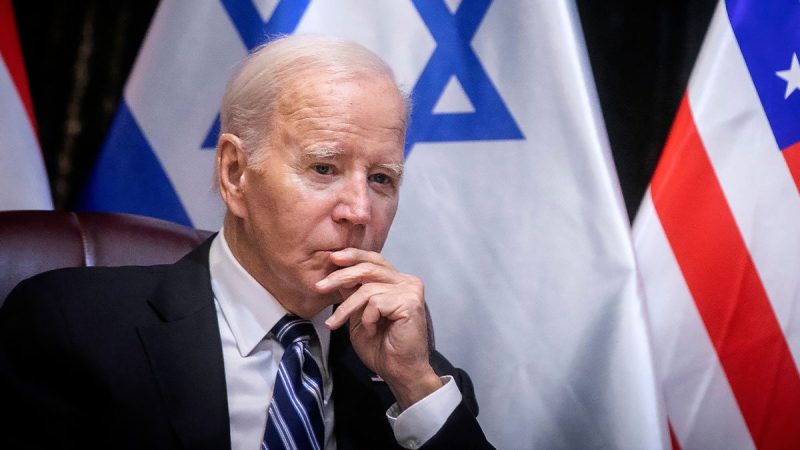President Biden’s decision to drop food aid directly into the Gaza Strip may seem at first like a benign effort to help suffering civilians during war. But it’s actually a symptom of a broader agenda to establish an independent bilateral relationship with the Palestinians separate and distinct from the U.S. alliance with Israel.
Previously, American provisions of aid to Gaza and/or West Bank have been coordinated with the Israeli authorities, as are similar donations from countries such as Egypt, Qatar and UAE.
But now President Biden is taking things into his own hands and radically shifting the dynamics of the U.S.-Israel relationship by not only dropping food but also considering the pre-emptive American recognition of a Palestinian state.
Such an action would not only justify the Oct. 7 Hamas terrorist attacks on Israel as a legitimate path to statehood – it would have potentially disastrous consequences that only Congress may be able to stop.
The wisdom of rewarding Hamas with dumps of the humanitarian aid from which they have cut their own people while they are still holding Americans hostage can be debated, but this issue is much broader.
From the earliest days of the Biden administration, re-starting the flows of U.S. taxpayer money to the Palestinians and the various organizations that support them frozen under President Trump has been a top priority, with assistance to date at well over a billion dollars.
In addition, President Biden has requested another $9 billion in his emergency supplemental for general humanitarian purposes. Some – if not all – would go the Palestinians in an unprecedented grant, presumably for the rebuilding of Gaza, giving America a massive ownership stake in the future of the strip.
While Biden’s ambassador the United Nations, Linda Thomas-Greenfield, did veto an Algerian-authored U.N. Security Council resolution last month condemning Israel and calling for a cease-fire, the administration made clear it was an issue of wording, not substance.
In an extraordinary move, the U.S. has circulated its own draft resolution on the topic, which included ‘support for a temporary cease-fire in Gaza as soon as practicable, based on the formula of all hostages being released, and calls for lifting all barriers to the provision of humanitarian assistance at scale…’ and declared that ‘that under current circumstances a major ground offensive into Rafah would result in further harm to civilians and their further displacement including potentially into neighboring countries.’
While the U.S. draft has not yet gotten a vote in the Security Council, there is no reason to think that it has been tabled, especially given Vice President Kamala Harris’ overt calls for a cease-fire on Sunday.
But the food drop and the U.N. resolution, as bad as they are, are only a prelude to an official and unilateral U.S. recognition of a Palestinian state without an agreement with Israel in the wake of the Oct. 7 attacks.
Such a step would be an astonishing declaration of equivalence between Israel and the Palestinians in American policy – most shockingly because the policy is being driven by Biden’s electoral prospects in December, not any legitimate aspirations of the Palestinians.
Senior Democrat lawmakers such as Rep. Ro Khanna, of California, are now publicly calling for the ‘something bold’ the Biden administration anonymously floated last month explicitly for domestic political reasons, which is hardly a valid reason to upend decades of U.S. policy in the Middle East, not to mention reward a horrific terrorist attack on Israelis and Americans alike.
The administration’s food dump into Gaza must not be mistaken for disinterested charity but be recognized for the stalking horse for the much more significant policy shift that it is. If Biden presses ahead with the plan to recognize a Palestinian state, Congress will have to act to preserve the U.S.-Israel alliance at this critical time.
Any requests for additional aid for the Palestinians should be expressly prohibited in the upcoming funding vehicles. And Congress should clarify that without the administration submitting any recognition of a Palestinian state to the Senate for passage as a formal treaty, it will be nothing more than an executive action that Biden’s successor can and should reverse with the stroke of a pen.

